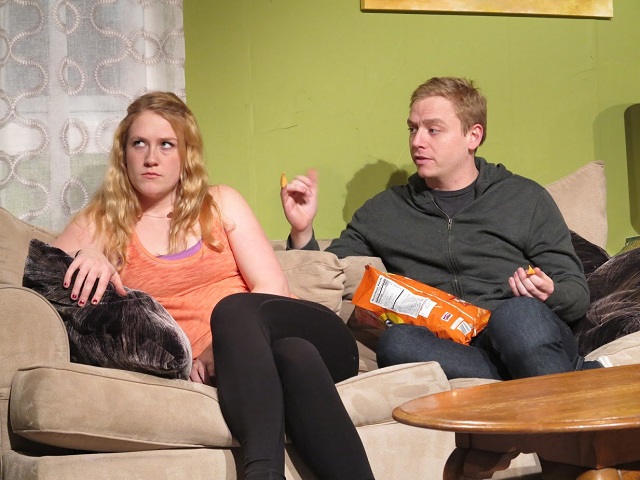Reviewed by LindaAnn LoSchiavo for L’Idea
Gentrification sucks. Ask the Finch family, residents of Silicon Valley, who are about to lose their home there. — — Squeaky Bicycle Productions
Think of a musical or a play as a string of pearls. If you don’t have a string, you can’t put the pearls around your neck. — — Marsha Norman
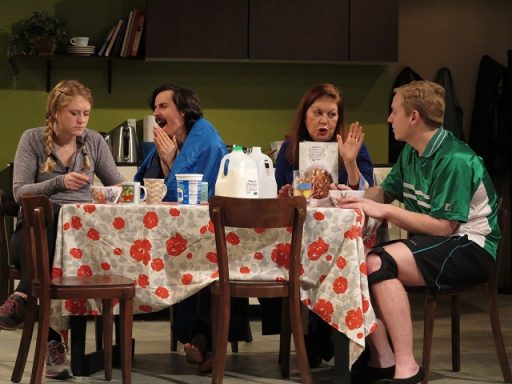
Gentrification, the neighborhood upgrade that starts with decreasing affordable housing units, thereby displacing the poor, is a word often seen in articles about heartless landlords. Whether it’s Chekhov’s 1904 masterpiece about Russian aristocrats losing their estate and a prized cherry orchard or a modern drama about lower-income folks in Palo Alto, California being edged out by “Facebook’s millionaires,” the loss of one’s home is a hot-button issue.
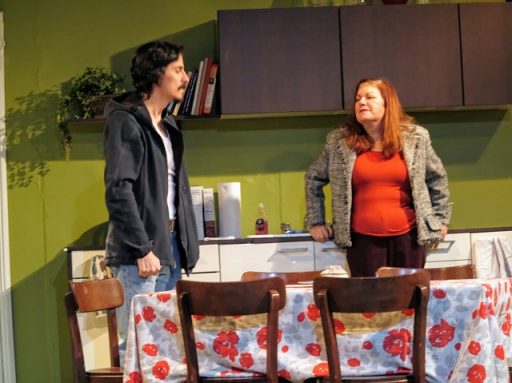
On opening night, surrounded by a colony of supporters, I was waiting for the gentrification plot to jell. There was quick crack about open houses from Aunt Lynn Finch (BETTINA GOOLSBY), eager to earn a broker’s license. A remark from family matriarch Mimi (on Feb. 3rd it was understudy LYDIA GLADSTONE) about bunkbeds, overcrowding, and the owner’s announcement about “a walk-through” also seemed auspicious. But no. Not so fast.
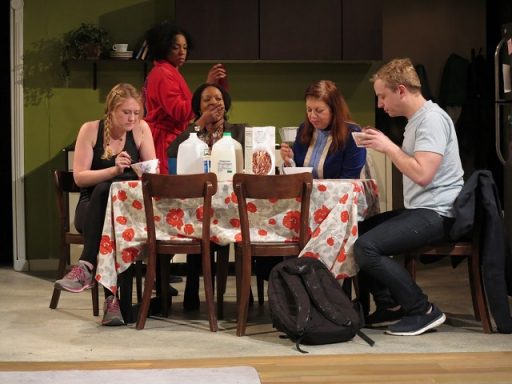
Instead we were stuck in the dank gymnasium of the author’s mind, where she was exercising the different possibilities of back-stories, belaboring whichever ones had no usefulness in the present moment, and stretching the narrative until it was shapeless.
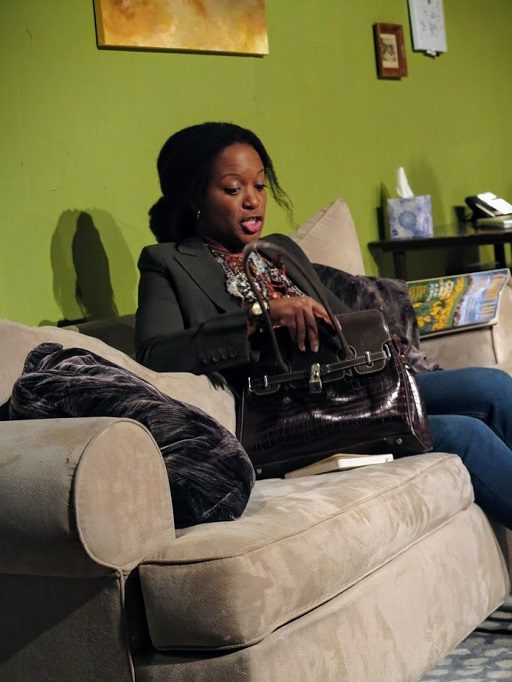
It’s frustrating that this play never starts nor illuminates how “gentrification sucks.” No protagonist is compelling enough to care about. And it’s hard to maintain interest in a dilemma — — even a potential eviction — — that the playwright herself is not sufficiently focused on.
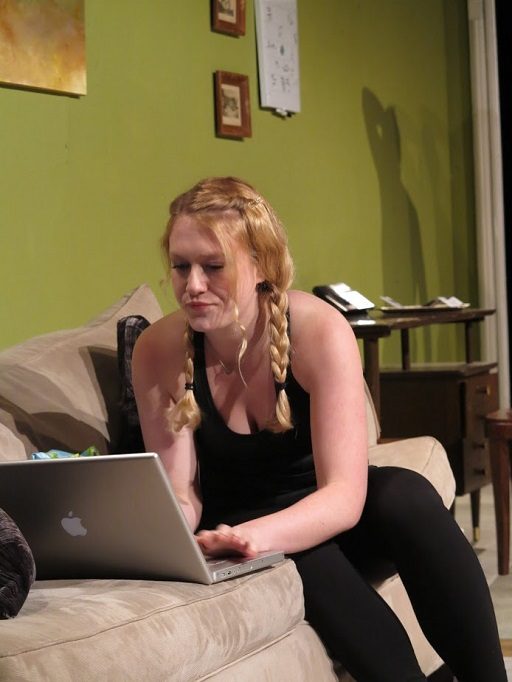
In any narrative, there must be material that moves the story forward. In theatre argot, it’s called the “through line,” i.e., the dramatic progression of the play. The writer must engage the listener by including conflicts and dialogue that hint at a pattern of significance swirling above the surface. Moreover, show don’t tell.
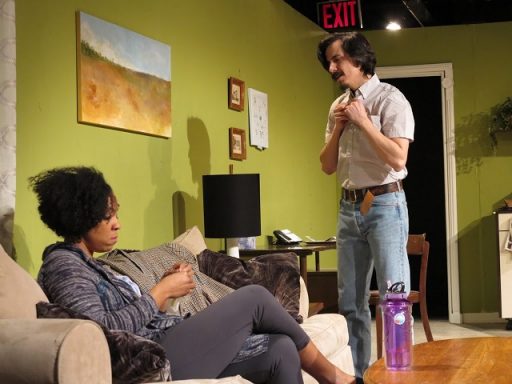
In this vehicle, whenever anyone hits the gas pedal, a detour makes it stall. Alas, these side trips seem pointless. For instance, there’s the wordy explanation of why the father of Uncle Teddy Finch (MICHAEL VITALY SAZONOV) called the police ten years ago, which sent his addicted son to jail and blah-blah-blah. Or the downward spiral of Molly Finch (CARLY KING), who crushes on a classmate and resorts to self-harm when he fails to “like” her Facebook posts. And we’re told far too much about a dead Finch, Mimi’s unnamed husband, whose ashes are in the yard under a geranium. The reliance on narration is not only tedious but it also eviscerates whatever potential for drama this production might have had.
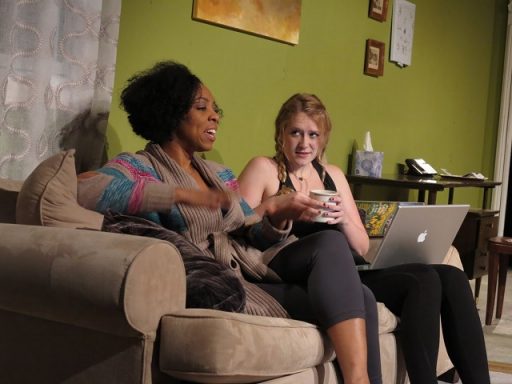
Curiously, fair-haired teenage twins Molly and Mason Finch (CURRY WHITMIRE) have a black mother and a black aunt. This odd choice is not grounded in a theme about racial identity nor is the eviction due to segregation. What should we make of the casting then?
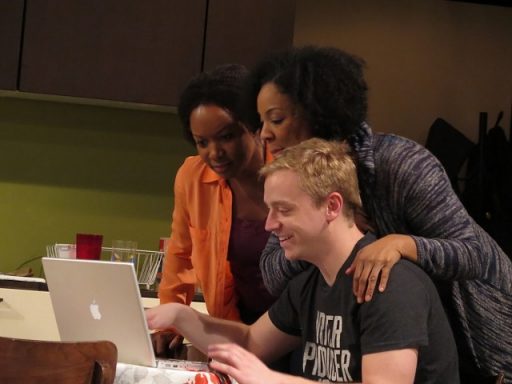
For all its surface eccentricity and laughs, “Or Current Resident” suffers from a profound lack of cohesiveness, dramatic imagination, and theatricality. It’s a chaotic mix of mystifying sub-plots, exasperating narration, and a gentrification plot that only resurfaces now and then like the wayward ghost in “Hamlet.” Three of the six cast members are unnecessary and make the storylines more convoluted.
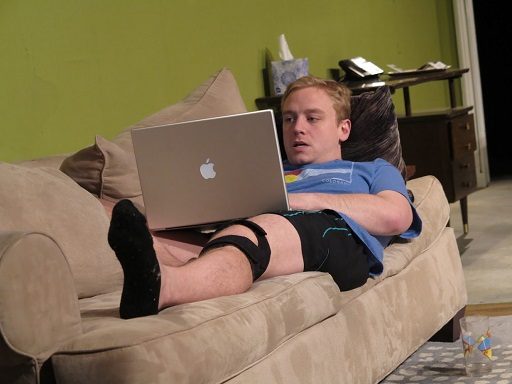
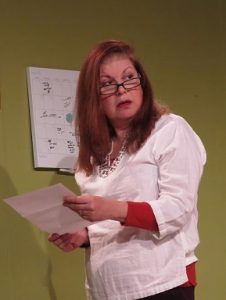
Meg McGuigan’s realistic set design suits this lower-middle class family. The sound design by Megan “Deets” Culley and lighting design by S. “Stolli” Stolnack did the job. Tasked more with straight narration than enhancing the dramatic arc with nuance or subtlety, the cast was no more than adequate.
Director Brandi Varnell supervised niche skills such as teaching the players how to swallow breakfast cereal while saying their lines and how to chew Hallowe’en candy while discussing the details of incarceration. Why use real food? The distraction caused by six actors jumping up and down, opening cabinets, retrieving refrigerated milk, and juggling bowls only detracted from the dialogue. A play is not supposed to resemble a competitive eating event.
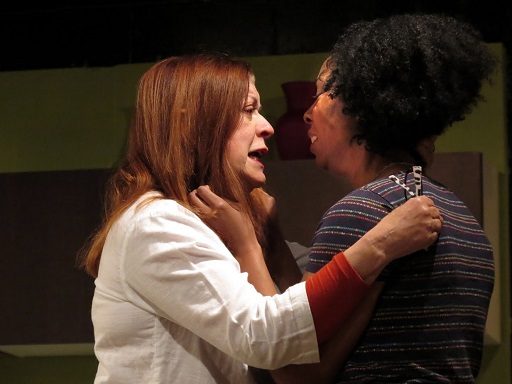
Since the text was so disjointed, it was a surprise to learn Squeaky Bicycle had been developing it and collaborating with the writer since 2015. Perhaps too many cooks . . .?
“Or Current Resident” is at Theater for the New City (155 First Avenue, NYC) until February 25, 2018.


